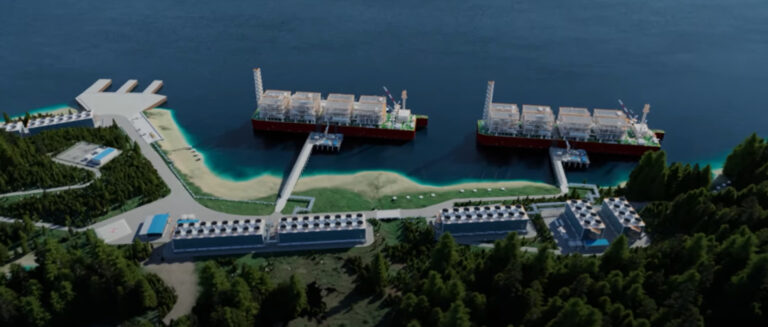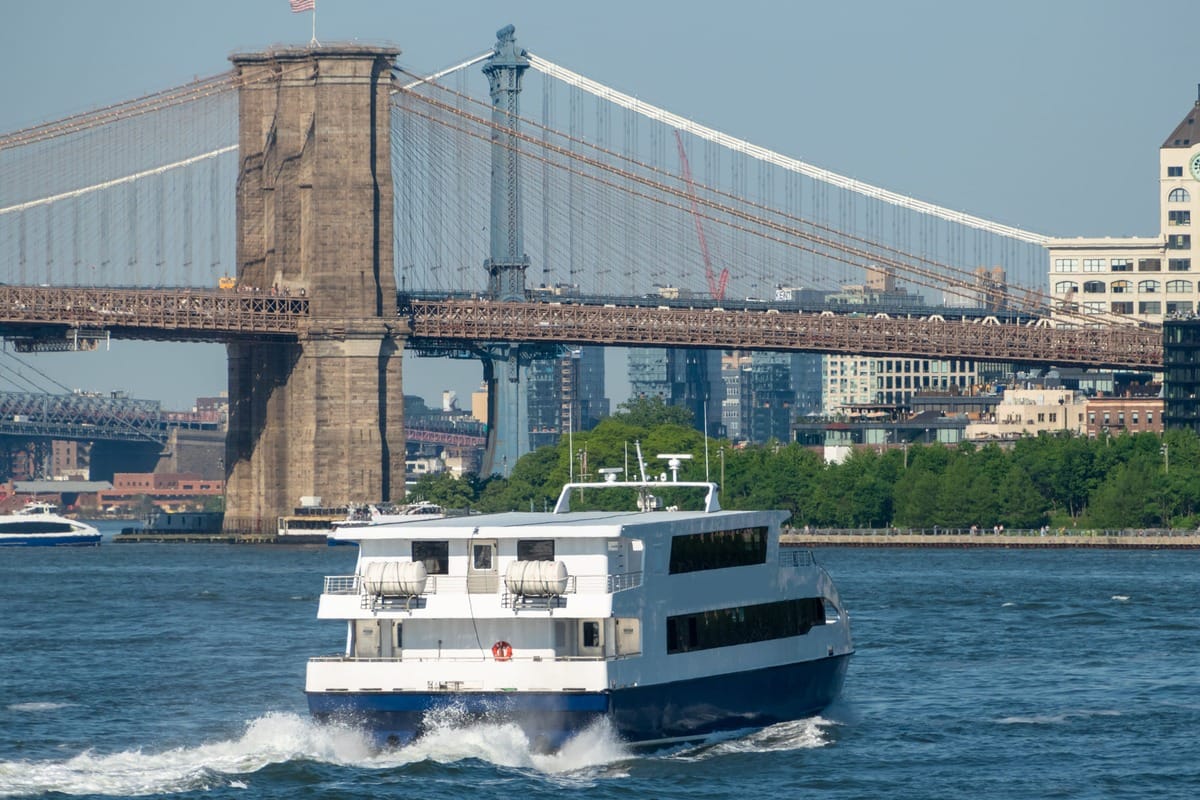Canada’s proposed 12-million-tonne-per-year liquefied natural gas (LNG) project on Pearse Island at the northwest coast of British Columbia (B.C.) is off to a great start in 2025 with new equity funding
Canada’s proposed 12-million-tonne-per-year liquefied natural gas (LNG) project on Pearse Island at the northwest coast of British Columbia (B.C.) is off to a great start in 2025 with new equity funding in place to fully support remaining development activities through to a final investment decision (FID), which is targeted to come later this year for the planned floating LNG (FLNG) facility and marine terminal on Nisga’a Nation treaty land.

Located at Wil Milit, approximately 15 kilometers west of Gingolx, on the northern end of Pearse Island, the Ksi Lisims LNG project, co-developed by the Nisga’a Nation, Western LNG, and Rockies LNG, is anticipated to become a world leader in lower-carbon LNG production, powered by renewable hydroelectricity. The proposed site encompasses undeveloped, but previously logged, land close to existing shipping routes, enabling shorter distances to Asian markets.
The Prince Rupert Gas Transmission (PRGT) project, related to this development, is co-owned by Western LNG and the Nisga’a Nation, with a future equity ownership opportunity also under development for other Indigenous nations along the pipeline corridor. Once connected to B.C. hydropower, the project’s emissions intensity is estimated to be 0.02 tonnes of CO2e per tonne of LNG. Even if temporary power barges are used, the facility’s emissions intensity is forecast to remain under the B.C. emissions benchmark for LNG production at 0.156 tonnes of CO2e per tonne of LNG.
Following the initial project description filing in April 2021, Ksi Lisims LNG’s application for an environmental certificate, which is said to have undergone a comprehensive technical review, including engagement with participating Indigenous nations, regulators, stakeholders, and the public, is now complete; thus, the Environmental Assessment Office (EAO) has reviewed the application and released a draft assessment report for public comment. As a result, the EAO will finalize its assessment report and submit it as part of a referral package to the Federal and Provincial Ministers of the Environment to support a decision this spring.
In the meantime, PRGT’s amendment filings and request for a substantial start determination are in progress, with decisions from the EAO anticipated in the spring and summer of 2025. These regulatory milestones are portrayed as crucial steps paving the way for Ksi Lisims LNG’s final investment decision to be made this year. Westwood has included this LNG project among major floating production system projects scheduled to be sanctioned in 2025.
Related Article
-
$54 billion in engineering, procurement and construction contracting opportunities on offshore oil & gas agenda for 2025
Business Developments & Projects
The inroads made in bringing the proposed $9 billion Ksi Lisims LNG project and PRGT pipeline to life come in the wake of a seven-year hiatus that impeded progress after previous developers dropped the PRGT project in 2017, three years after receiving an environmental assessment certificate.
The LNG project was hit with a court challenge by Gitanyow, part of the larger Gitxsan, due to the group’s exclusion from consultations over the proposed development. The judicial review application followed the BC EAO’s assessment that there was “no reasonable possibility” for Gitanyow or its rights to be adversely affected by the LNG project.
The Ganeda Wilps Watakhayetsxw and Gamlakyeltxw worked together to develop a proposed Indigenous Protected Area in the Cranberry and Kiteen watersheds along the pipeline routes to stop further incursions into the Gitanyow Lax’yip from PRGT and other LNG pipelines. Gitanyow also joined other First Nations and allied groups in a joint letter to potential financiers, warning them of the environmental and legal risks associated with the project.
Naxginkw/Tara Marsden, Wilp Sustainability Director, emphasized in November 2024: “Our review of the substantial start application submitted by PRGT to the BC Environmental Assessment Office reveals troubling false statements and misleading information, a small amount of last-minute physical construction work completed over a 2-month period following ten years of in-activity, and a disregard for substantial start policy guidelines and jurisprudence. Gitanyow remains committed to taking all legal actions necessary to ensure transparency, accountability and a rigorous and fair decision-making process.”
While the project entailed a pipeline system up to 900 kilometers long, the recent proposal to tweak the pipeline route extends the corridor before entering Nass Bay, thanks to a 9.4-kilometer reroute within the bay, shortening the pipeline with the end point being at the proposed Ksi Lisims LNG project on Pearse Island rather than Lelu Island, as envisaged in the original plan.
Related Article
Since Western LNG completed a private placement of equity securities on December 30, 2024, securing over $150 million in commitments, the funding, which is said to fully support the remaining development activities for the Ksi Lisims LNG and PRGT projects to the FID stage, has lifted cumulative investments in these projects to more than $265 million.
As the private placement is anchored by a commitment from Blackstone Energy Transition Partners, the participation of an affiliate of Blackstone, which has over $1.1 trillion in assets under management, is interpreted to underscore investor confidence in the viability and strategic importance of the Ksi Lisims LNG and PRGT, envisioned to deliver natural gas from the Western Canadian Sedimentary Basin to the LNG terminal to help meet growing global energy demand.
Davis Thames, President and CEO of Western LNG, commented: “Blackstone’s anchor investment in this private placement demonstrates its confidence in the Ksi Lisims LNG and PRGT projects and confirms that our approach to delivering responsible, net-zero-ready energy infrastructure is aligned with market demand. Ksi Lisims LNG and PRGT are designed to meet or exceed Canada’s rigorous environmental standards and will help meet global energy needs while driving regional prosperity.
“Western LNG remains committed to working closely with regulatory agencies, Indigenous communities, and local stakeholders to ensure transparency, environmental integrity, and shared benefits. Blackstone’s support positions us to proceed toward a final investment decision for Ksi Lisims LNG and construction of both projects.”
In addition, Western also received significant commitments in this placement from affiliates of Jefferies Financial Group, Transition Equity Partners (TEP), and other new and existing private investors. According to the company, the proceeds of this private placement will support the advancement of discussions with participating Indigenous nations, the completion of front-end engineering for the Ksi Lisims LNG and PRGT developments, and the completion of environmental and regulatory permitting and compliance for both projects.
David Foley, Global Head of Blackstone Energy Transition Partners, remarked: “Our investment in Western LNG reflects our commitment to seeking out high-quality projects with potential to deliver attractive returns for our investors and contribute to global decarbonization efforts.
“Global demand for affordable, reliable and more sustainable energy is increasing, and the development and construction of critical energy infrastructure is struggling to keep up. Western is ideally located to connect Canada’s immense low-cost natural gas reserves with Asia, the world’s largest and most rapidly growing market for liquefied natural gas.”
The funding will spur Western’s headcount boost, allowing the firm to raise its staffing levels for both projects in 2025. Aside from the funding commitments made in this private placement, Blackstone and the other participants secured equity investment rights at FID in Ksi Lisims LNG. With the required equity capital in place, the stage is set for the project to start construction once the FID is out of the way.
The 12-mtpa natural gas liquefaction and marine terminal project, which is envisioned to receive 1.7–2 billion cubic feet of natural gas per day and export it overseas once commercial operations start in late 2028 or 2029, secured a 40-year export license from the Canada Energy Regulator (CER) two years ago. The first LNG offtake agreement was inked with Shell.
Related Article
-
Canada’s Ksi Lisims LNG concludes first LNG offtake agreement with Shell
Business Developments & Projects
The giant LNG project is expected to create significant revenue for British Columbia, Alberta, and Canada. Based on its size and scope, this project is expected to generate approximately $2.5 billion in annual gross domestic product, 21,000 employment opportunities, and $890 million in annual provincial and federal tax revenues in Canada over the construction and operations stages.
Moreover, Ksi Lisims LNG has the potential to create 3,520 to 4,220 full-time equivalents of direct employment in BC and 2,775 to 3,510 indirect jobs through the construction and operations phases. This project could bring the GDP contribution of $6.9 to $18.7 billion to the Canadian economy, of which $4.8 to 16.6 billion is anticipated in British Columbia.
JP Munfa, Senior Managing Director at Blackstone Energy Transition Partners, highlighted: “Western’s innovative lower-emission approach and their strong Indigenous partnerships, particularly with the Nisga’a Nation, position their projects to play a critical role in helping to meet the world’s growing cleaner energy needs.”
This content is available after accepting the cookies.

Content Original Link:
" target="_blank">

























































